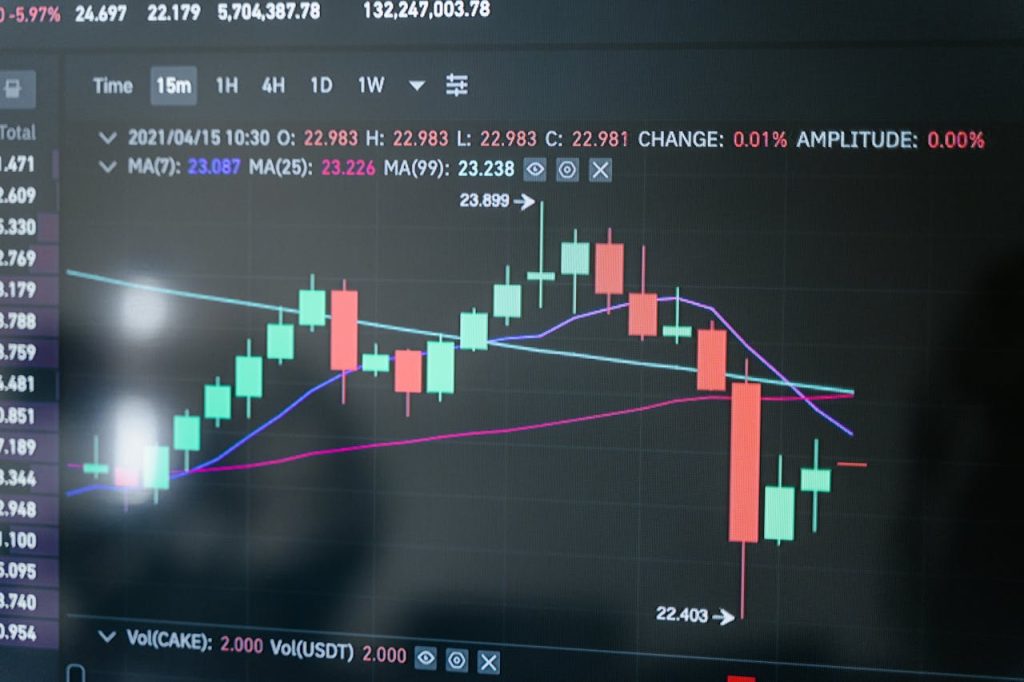
Overconfidence in the market is more common than most investors realize. It can lead to costly mistakes that wipe out years of savings or even fortunes. Many people believe their instincts or knowledge are enough to outsmart market trends. This mindset often results in ignoring risks and making hasty choices. Understanding how overconfidence can impact your investments is crucial. If you want to protect your wealth and make sound decisions, you need to recognize the traps that overconfidence sets.
1. Ignoring Diversification
One of the biggest dangers of overconfidence in the market is the belief that you can pick winners consistently. Investors often pour too much money into a handful of stocks or sectors, convinced they have special insight. This lack of diversification exposes them to enormous risk if those picks go south. Even the most successful investors can’t predict which company or industry will surge or collapse next.
When you put all your eggs in one basket, a single downturn can erase years of gains. A well-diversified portfolio, by contrast, spreads out risk and helps cushion against market shocks. Overconfidence blinds people to this basic principle, and the result can be catastrophic losses.
2. Excessive Trading
Thinking you can time the market is a classic sign of overconfidence. Many investors believe they can jump in and out at the perfect moment, buying low and selling high. In reality, even professionals struggle to do this consistently. Frequent trading racks up fees, taxes, and often leads to buying high and selling low.
Overconfident investors may also chase hot tips or react to short-term news, believing their quick moves will outpace the market. This approach rarely works. In fact, studies show that excessive trading usually lowers returns over time. The market rewards patience and discipline, not bravado.
3. Underestimating Market Volatility
Overconfidence in the market often leads investors to assume that past performance guarantees future results. They may overlook how quickly markets can change. When volatility spikes, overconfident investors are caught off guard and may panic sell at the worst possible moment.
Ignoring the potential for downturns means failing to plan for them. Without a strategy for managing risk, your investments are exposed. Market swings are inevitable, and those who underestimate them can lose millions in a matter of weeks or even days.
4. Falling for Confirmation Bias
When you’re overconfident, it’s easy to seek out information that supports your existing beliefs. This is known as confirmation bias. Investors may ignore warning signs or negative news about their favorite stocks, focusing only on the positive. This selective thinking can lead to holding onto losing investments for too long.
Confirmation bias also fuels groupthink. If everyone around you is bullish, it’s tempting to ignore the risks and follow the crowd. Overconfidence in the market makes it harder to question your assumptions, which can lead to big losses when reality doesn’t match your expectations.
5. Overlooking Professional Advice
Some investors believe they know more than financial professionals or the broader market. This overconfidence can prevent them from seeking guidance or considering alternative viewpoints. While it’s important to do your own research, dismissing expert advice entirely can be costly.
Financial advisors have experience navigating market ups and downs. They can help you build a diversified portfolio and avoid emotional decisions. Ignoring their input, especially during turbulent times, can result in missed opportunities or preventable losses.
6. Misjudging Risk Tolerance
Overconfidence in the market often leads investors to take on more risk than they can truly handle. They may believe that downturns won’t affect them or that they can recover quickly from losses. When reality hits, panic sets in, and rash decisions follow.
Understanding your true risk tolerance is vital. If you overestimate your comfort with volatility, you might sell in a downturn and lock in losses. Honest self-assessment is key to long-term investment success. Don’t let overconfidence cloud your judgment.
Strategies to Avoid the Overconfidence Trap
Recognizing the risks of overconfidence in the market is the first step to protecting your wealth. Start by building a diversified portfolio and sticking to a long-term plan. Avoid frequent trading and resist the urge to chase hot tips. Take the time to assess your real risk tolerance, and don’t be afraid to seek guidance from professionals.
Stay open to new information and challenge your own assumptions. Markets are unpredictable, and even seasoned investors make mistakes. By staying humble and disciplined, you can sidestep the pitfalls that cost others millions.
Have you ever made a costly investment mistake because of overconfidence in the market? Share your experience or tips in the comments below!
What to Read Next…
- Why ChatGPT May Be Generating Fake Financial Advice And Getting Away With It
- How Financial Planners Are Recommending Riskier Portfolios In 2025
- 7 Areas Of Your Portfolio Exposed To Sudden Market Shocks
- Identifying Underpriced Stocks Using The Graham Formula
- 10 Financial Questions That Could Reveal You’re Being Advised Poorly
The post How Can Overconfidence in the Market Cost Millions appeared first on The Free Financial Advisor.







